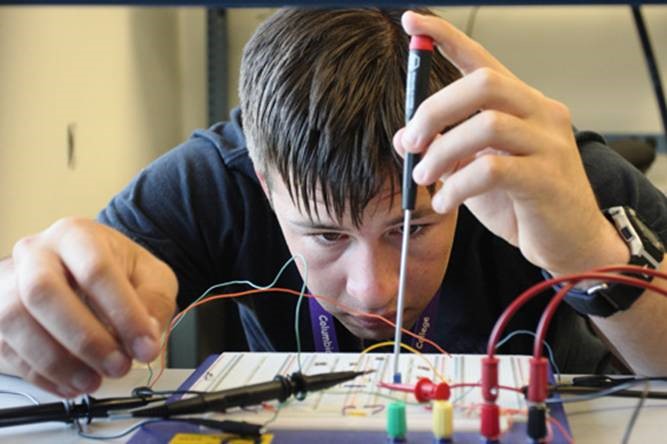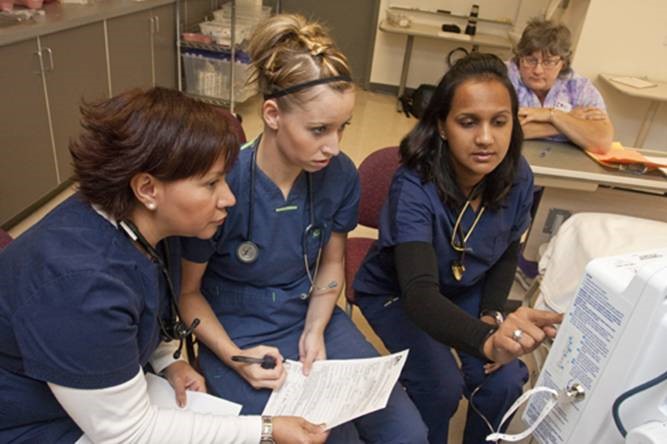Columbia Gorge Community College: Responding to Workforce Needs, CGCC Leads the Way in Rural Oregon
What is the role of higher education in our world today? Some say universities and colleges should prepare students to think and research critically. Others proclaim that institutions need to mold future citizens of the world. But there is one thing people agree on—schools of higher learning are supposed to ready individuals to fill the workforce needs of tomorrow. Columbia Gorge Community College (CGCC), in north-central Oregon, has been ahead of the curve in stabilizing the fragile economy for the last decade. As the only postsecondary institution in a service area of 10,000 miles, CGCC makes a dedicated effort to create programs that respond to the needs of emergent industries.

College staff members were proactive in creating a Nursing AAS program in 2001 by partnering with regional healthcare providers to address hiring requirements. Connections with local healthcare entities were important, and representatives from these agencies assisted with program development. Local hospitals provided some financial support, and CGCC secured additional funding from the U.S. Department of Labor and U.S. Department of Education. In addition, 15 regional agencies allow CGCC students to train at their facilities. These combined industry-school partnerships have allowed the Nursing program to gain national attention as a premier rural healthcare training facility. Over 96 percent of students in the program gain employment, and up to 24 students are accepted into the program annually. The Nursing program provided a valuable model for CGCC to collaborate with industry partners, and that model has since been adapted to establish a renewable energy training program.

The Renewable Energy Technology AAS program was envisioned after construction of several wind farms in the area in 2006. CGCC worked with local industry partners and a regional workforce agency to conduct a needs assessment. After results indicated job growth in the area, CGCC moved forward with program implementation. Students may receive a nine-month certificate or two-year degree focused on renewable energy technology: wind, solar, hydro, automated manufacturing, or engineering. Industry partners were instrumental in curriculum development, and have donated equipment, scholarships, and on-going funding. An industry-led advisory committee has been active in making recommendations for keeping curriculum relevant to evolving industry needs. More than 80 percent of this program's students find jobs in energy and technology sectors, and up to 40 students are accepted into the program annually. The Renewable Energy Technology program has again shown that responding to workforce needs benefits students, regional companies, and the economy.
These are just two of several examples of CGCC meeting local workforce needs and succeeding in developing long-term relationships with industry partners that benefit students in the region. The same model has also been used in other programs at the college, such as an industrial skills program, a micro-electronics program, an electronics engineering technology program, and in specialized training for medical assisting and CNA 2. The mission of the college is to "build dreams, transform lives, and strengthen our community." Success comes from taking great care to listen to the needs of industry partners on multiple levels—individual students, businesses, the economy—locally, regionally, and nationally.
Contact: Michal Kawka, Career and Technical Education Advisor, 541 506 6022










